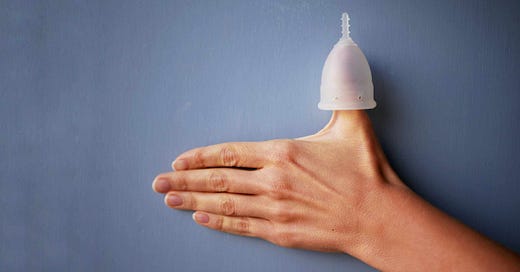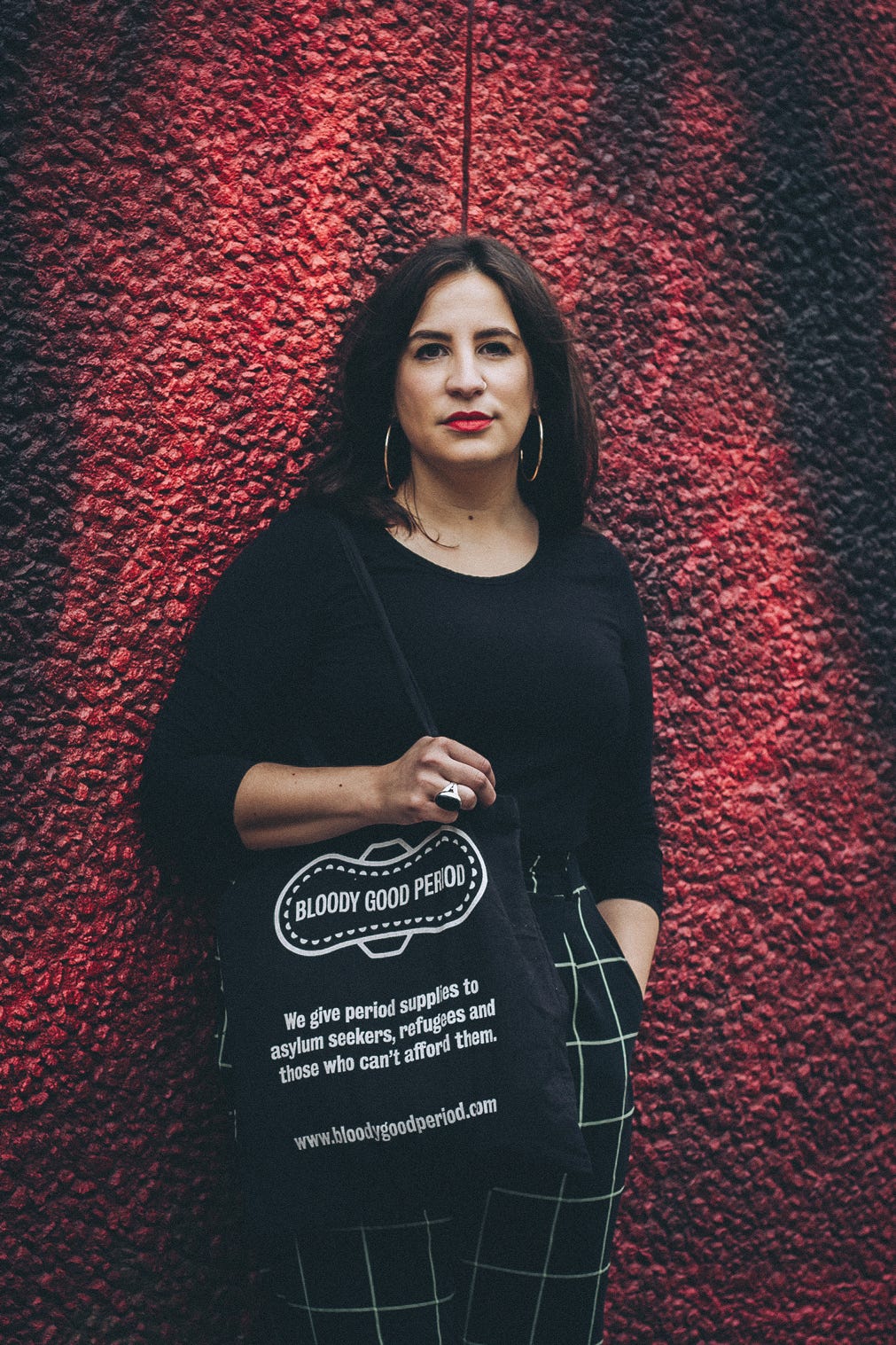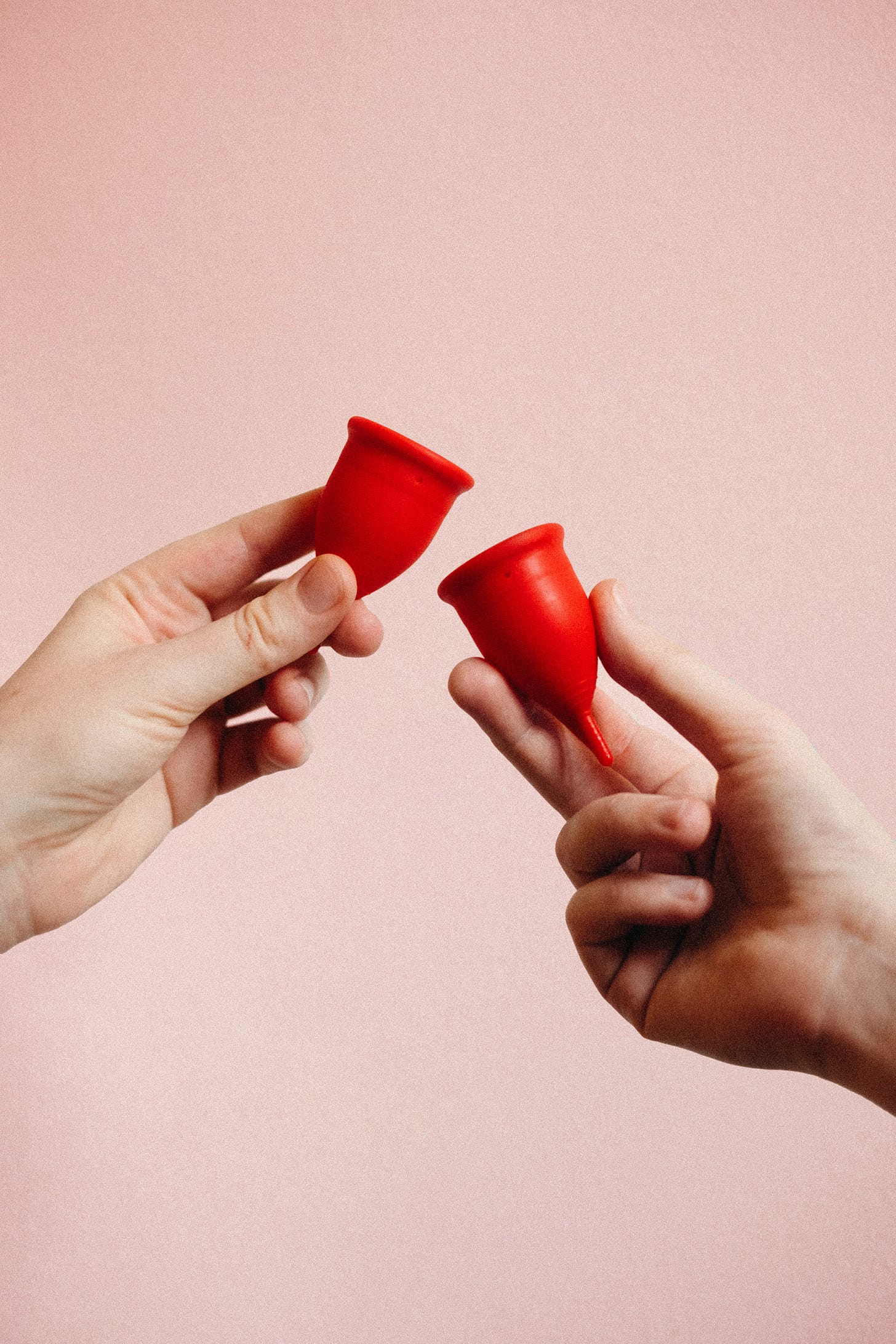Yes, the government just lost its mind over a menstrual cup…
When Cop26 spokeswoman Allegra Stratton revealed she’d swapped disposable sanitary products for a reusable cup for sustainability reasons, Number 10 tried to kill the story. Why?
Controversy, angry newspaper commentary and furious government ministers can arise from many things. This week, however, might be the first time all three have been prompted by one woman’s menstrual cup.
The woman is Allegra Stratton, the former prime ministerial aide turned Cop26 spokeswoman, who recently gave a series of interviews suggesting the ‘micro-steps’ ordinary people could take to help stem the climate crisis. The initial reaction was a mix of ridicule and outrage. But amid disagreement over the planet-saving capacity of not rinsing dishes before putting them in the dishwasher – just 100 companies are responsible for 71% of global emissions, folks – there was, however, another row boiling beneath the surface.
For Stratton had also revealed she’d swapped out tampons and towels for a menstrual cup. And some government ministers were not at all happy about it.
Stratton’s menstrual cup preference had formed part of a wider piece of writing, delving into her personal environmental efforts at home. So shocking, however, was the reference believed to be by Number 10, the section was deleted by spin doctors. This, of course, only created more media intrigue.
“Stratton’s intervention might have been more controversial,” the Sunday Times wrote, spikily uncovering the issue anyway. “Eyebrows were raised that she wrote an article on what she does in her own life, detailing how she has ditched sanitary products for an environmentally friendly menstrual cup during her period. References to this intimate revelation were removed by spin doctors but spread like wildfire in Whitehall.” Cabinet minister Alok Sharma, the paper continued, was “furious”.
The Daily Mail then jumped in, scribbling up a couple of loose sentences under the headline ‘Number 10 aide Allegra Stratton makes going green a very personal affair as she switches from traditional sanitary products to eco-friendly menstrual cups’. I mean, really?
Controversial? Intimate revelations? Wildfire? Amid a global pandemic, as real wildfires burn as a result of the very climate change Stratton was talking about, is this really a sane reaction to a one-sentence aside about period products? Clearly, the men of Westminster are made of very delicate stuff.
Wombs of Westminster
“Do I live in hope that one day people's bodies, particularly women's and people who menstruate's, will not be ‘controversial’? Always. But am I surprised? Absolutely not,” sighs Gabby Edlin, the founder of Bloody Good Period when I ask her about the hoo-ha. “Periods have been taboo for centuries, and we are only just beginning to undo that nasty work. This does take time and good on Allegra for normalising the use of reusables. Frankly, I find it more bizarre that government ministers are clearly comfortable acting like little schoolboys at the mention of menstruation. Get a grip – it's a bloody sensible suggestion! If you can use and access a menstrual cup, it's a great alternative to tampons.”
Edlin is right, of course – menstrual cups are a fantastic option, not just for those seeking to cut down on waste and plastic use, but also as a tool to tackle period poverty.
A 2019 study published in The Lancet Public Health medical journal found menstrual cups can save money, water usage and waste for people with periods, but are nowhere near as well known or understood globally as tampons or towels. "In any impoverished set of circumstances be it in Liverpool, or London, or anywhere in low-middle-income countries, people really struggle to be able to manage their menstruation," the report’s lead author, Penelope Phillips-Howard, said, describing menstrual cups as part of the solution.
Stratton, too, is right. The researchers found that one menstrual cup produced an estimated 0.4% of the plastic waste that single-use pads would, or 6% of the waste produced by using tampons over a ten-year period. What’s more, over a decade, opting for a reusable cup over disposable products would be about 95% cheaper – not an insignificant fact in the face global period poverty.
Just this week, in fact, the Independent reported that women in Lebanon are now having to choose between food and sanitary products as the price of tampons and pads has soared. I wonder whether those being pushed into poverty there would find Stratton’s menstrual cup funny or controversial?
Ending shame
The problem, of course, is that all of this giggling and passing of smelling salts hides more than just the facts. It also hides the serious ramifications of presenting periods, once again, as something shameful or embarrassing – this time in 25-point Ariel bold type. Stratton’s open discussion of hers has not only made her employer “furious”, it’s garnered headlines.
“This behaviour actively reinforces the taboo of periods, and results in period poverty,” Edlin tells me. “If you're too embarrassed to even talk about periods because you're told it's ‘controversial’, what the hell are you going to do if you can't afford products? The fact that period poverty was hidden for so long tells us about the shame caused by the double bind of poverty and menstruating. If you can't tell anyone about it, how can you get help for it? We see this time and time again, people reaching us at Bloody Good Period, incredibly ashamed and embarrassed, because having a normal bodily function has been made to feel like something to be ashamed of.”
Predictably, though, that message isn’t getting through to all who need to hear it. Taken out of context and handed a headline all its own, Stratton’s period honesty went on to attract no small number of snide opinions on the delightful Mail Online comments board, from readers like Marty O – “This is disgusting, I don't want to know what she does down there, yuk”– Kikimimi – “I feel like throwing up right now!” – and ‘Lionel Linebacker’, who went for double misogyny points with “Cup Cup, best friend of Nut Nut” in reference to Stratton’s reported friendship with Carrie Symonds.
What message do such unmoderated comments send, I wonder, to those women and people with uteruses who are struggling to access the menstrual products, healthcare or support they need as a result of continuing, and apparently state-sanctioned, shame?
“It tells us there is plenty more work to do to normalise a healthy bodily function,” Edlin says. “It also tells us where those in power and many in the media draw the line when it comes to talking about menstruation. Reprimand women and menstruators for using too many plastic products? No problem. Pay attention to schoolchildren living in poverty unable to access pads... mmm, just about and only if forced. Being comfortable with a woman talking openly about and having control over her own body? Run for the hills, lads!
“If a cis man advised using reusable razors, no one would bat an eyelid. This? It’s misogyny, pure and simple.”






